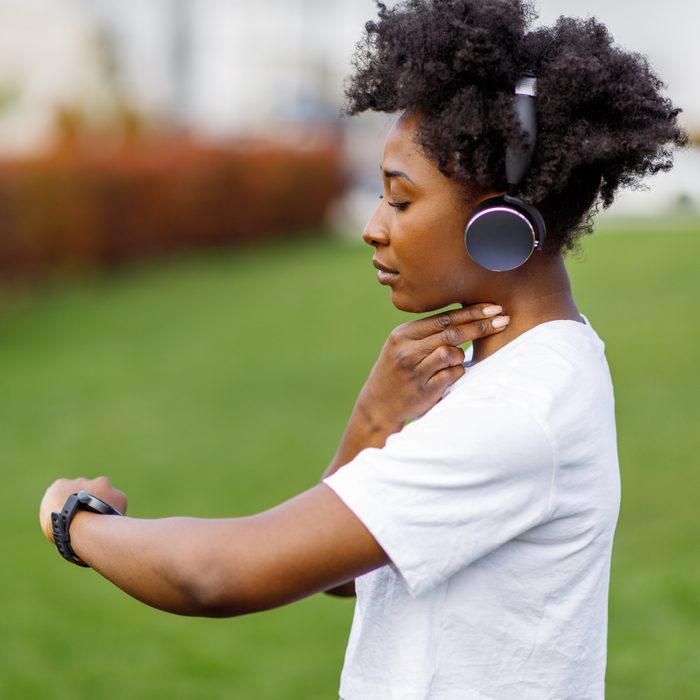Heart Attacks Might Be Preventable with This Chinese Medicine Exercise, Says TikTok—So Does It Work?
Updated: Jul. 27, 2023

Doctors who are experts with the American Heart Association weigh in on an ancient medicine practice users say can supposedly help prevent heart blockages.
To keep your heart healthy, maybe you’re mindful of how much saturated fat and sodium you eat, you get your blood pumping throughout the week with exercise, and you understand the connection between longevity and surrounding yourself with healthy relationships.
Plenty of research has demonstrated that all those can be a few good ways to decrease the risk for heart attack and heart disease in both men and women. Still, we’re living in a time when arguably more Americans than ever place their wellness as a top priority…and are even willing to try a few light-hearted experiments in the pursuit of great health.
Always take health advice from any social media site at your own risk—but some TikTok users have been sharing an ancient Chinese medicine technique that some say can help prevent heart blockages. It might seem peculiar, but it’s gaining a lot of traction.
To get to the bottom of this, we spoke with doctors about this cupping trend to see whether this buzzy method actually works or is another batch of unfounded information making its rounds on the Internet.
Get The Healthy @Reader’s Digest newsletter for the latest in heart health
The viral cupping trend for heart blockages
Last week, TikTok user @Staceesteele posted a video on her account in response to a video in which a man demonstrates a Chinese medicine technique called cupping that allegedly prevents heart blockages. At press time, Steele’s video had garnered over nine million views in a little less than a week, with thousands of users commenting how they are “slapping the mess out of [their] bodies” and “up in bed at 3am cupping the hell out of [their] bodies.” [sic]
According to the original video, you clap your hands nine times in front of your body, then use your right hand to cup the inside of your left elbow nine times, the left hand to cup the inside of your right elbow nine times, and then the right hand to cup your left armpit nine times and vice versa. This is supposed to be repeated nine times with hands cupped so the “vibrations can help open up the channels.”
This Is the Best Diet for Your Heart, Says New Report
Does cupping work to prevent heart problems?
A licensed medical doctor’s short answer is that no, cupping your elbows and your armpits does not prevent heart blockages. Says Dr. Donald Lloyd-Jones, MD, ScM, chair of the Department of Preventive Medicine at the Northwestern Medicine Feinberg School of Medicine and volunteer medical expert for the American Heart Association: “There is no basis in what we know about coronary artery disease to suggest that this would prevent plaque formation in the coronary arteries or prevent the transition to a plaque causing a heart attack.”
According to Reetu Sharma, MD with Sutter Health Heart & Vascular Institute, who’s also a volunteer medical expert for the American Heart Association, cupping for the heart is an unreliable approach that’s giving people false hope for a quick fix. “Every day, I will have a patient bring some product that they found is a miracle cure for some ailment or another,” Dr. Sharma says. “Unfortunately, the people that purport this have no burden of proof. It is human nature to want a shortcut to every problem.”
4 Easy Metrics That Help Gauge Your Heart Health (and That You Can Measure Yourself)
What can you do to prevent a heart attack?
There are a few scientifically demonstrated methods to reduce the likelihood of developing a heart attack. “We know that a healthy diet, physical activity, healthy sleep, avoiding cigarette smoking, and maintaining a healthy weight, blood pressure, cholesterol profile, and blood sugar are clearly the best ways to prevent heart attack,” says Dr. Lloyd-Jones.
You’ll want to speak with your physician about maintaining your heart health in ways that are safe and effective for you before starting any new regimen or routine—and while cardiovascular advice rarely includes salt, take health advice you learn on social media with a dash of it.



















